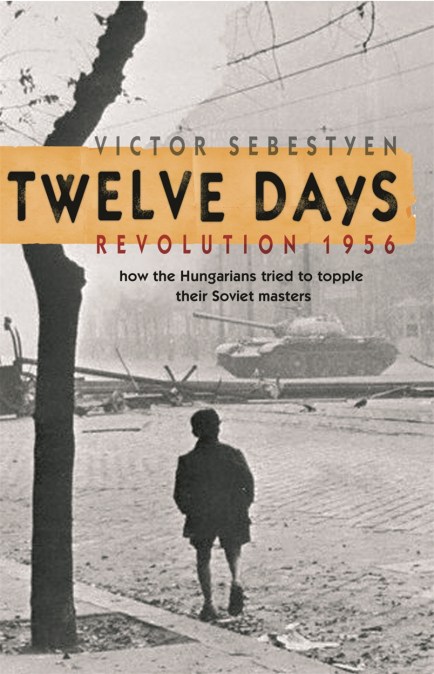The defining moment of the Cold War: ‘The beginning of the end of the Soviet empire.’ (Richard Nixon)
The Hungarian Revolution in 1956 is a story of extraordinary bravery in a fight for freedom, and of ruthless cruelty in suppressing a popular dream. A small nation, its people armed with a few rifles and petrol bombs, had the will and courage to rise up against one of the world’s superpowers.
The determination of the Hungarians to resist the Russians astonished the West. People of all kinds, throughout the free world, became involved in the cause. For 12 days it looked, miraculously, as though the Soviets might be humbled. Then reality hit back. The Hungarians were brutally crushed. Their capital was devastated, thousands of people were killed and their country was occupied for a further three decades.
The uprising was the defining moment of the Cold War: the USSR showed that it was determined to hold on to its European empire, but it would never do so without resistance. From the Prague Spring to Lech Walesa’s Solidarity and the fall of the Berlin Wall, the tighter the grip of the communist bloc, the more irresistible the popular demand for freedom.
The Hungarian Revolution in 1956 is a story of extraordinary bravery in a fight for freedom, and of ruthless cruelty in suppressing a popular dream. A small nation, its people armed with a few rifles and petrol bombs, had the will and courage to rise up against one of the world’s superpowers.
The determination of the Hungarians to resist the Russians astonished the West. People of all kinds, throughout the free world, became involved in the cause. For 12 days it looked, miraculously, as though the Soviets might be humbled. Then reality hit back. The Hungarians were brutally crushed. Their capital was devastated, thousands of people were killed and their country was occupied for a further three decades.
The uprising was the defining moment of the Cold War: the USSR showed that it was determined to hold on to its European empire, but it would never do so without resistance. From the Prague Spring to Lech Walesa’s Solidarity and the fall of the Berlin Wall, the tighter the grip of the communist bloc, the more irresistible the popular demand for freedom.
Newsletter Signup
By clicking ‘Sign Up,’ I acknowledge that I have read and agree to Hachette Book Group’s Privacy Policy and Terms of Use
Reviews
A small masterpiece that should be read and treasured by all who value mankind's eternal quest for freedom
Sebestyen's gripping description of the uprising is impressively researched and even-handed
Sebestyen's account is elegant and emotive
A gripping and enlightening read ... recommended for anyone wanting to learn more about a tragic and regrettable event in European history
This is a vivid, heartbreaking account of the brutal crushing of the first armed insurrection against Soviet occupation. Twelve Days is essential reading for understanding the great risks people will take for freedom
Victor Sebestyen is a marvellous guide to the Hungarian revolution: its causes, its unfolding and its aftermath. His nuanced, intelligent account reads in part like a thriller and he captures well the drama of those fateful days...This is a first-class book that should become the standard work on a revolution whose after-effects are still shaping the Europe in which we live today
Sebestyen's ...will be the classic account of the Uprising
Wielding a vast array of newly released archives and completely new eyewitness testimony, Victor Sebestyen has written a magisterial but also totally gripping and fresh account of the noble, violent and doomed Hungarian revolution: a tale of murder and battles on the streets of Budapest and in the dungeons of the KGB, and of high-level intrigue from the White House to the Kremlin. Above all, it is a story of courage and decency among ordinary Hungarians. The result is a tour de force
Sebestyen's account of the doomed uprising is utterly enthralling and almost unbearable to read





